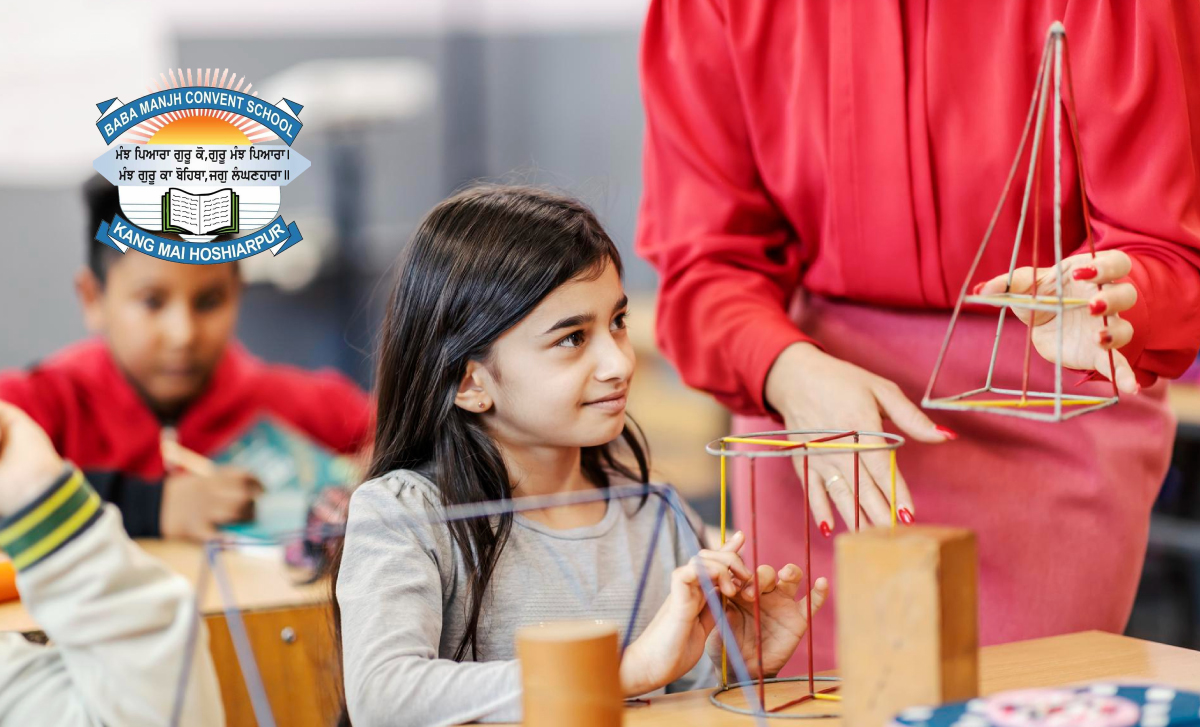
20 Mar 6 Ways to Develop Critical Thinking Skills
In our rapidly evolving world, critical thinking has become an essential skill that empowers individuals to navigate complex challenges, make informed decisions, and thrive in various aspects of life. In this blog, Baba Manjh Convent School, one of the Best CBSE Schools in Hoshiarpur will explore the importance of critical thinking, and its benefits, and provide practical ways to develop and enhance this invaluable skill.
Understanding Critical Thinking
Critical thinking is the ability to analyse, evaluate, and synthesise information to form well-reasoned judgments or make sound decisions. It involves questioning assumptions, seeking evidence, considering different perspectives, and identifying logical fallacies. By honing critical thinking skills, individuals can become more discerning, innovative, and effective problem solvers.
Developing Intellectual Curiosity
Intellectual curiosity is the foundation of critical thinking. Encouraging curiosity involves cultivating a thirst for knowledge and encouraging individuals to question, investigate, and explore diverse topics. Reading books, engaging in meaningful discussions, attending lectures or TED talks, and pursuing new hobbies are just a few ways to fuel intellectual curiosity.
Analysing and Evaluating Information
For fostering critical thinking, it is very crucial to develop skills in analysing and evaluating information. This involves differentiating between fact and opinion, assessing the credibility and relevance of sources, and recognising biases. Encourage individuals to fact-check information, verify sources, and question assumptions to develop a discerning mindset.
Engaging in Problem-Solving Activities
Practical problem-solving activities can sharpen critical thinking skills. Encourage individuals to tackle puzzles, and riddles, or engage in strategy games that require analytical thinking. In addition, engaging in real-life problem-solving scenarios, such as participating in group discussions or collaborative projects, can enhance critical thinking abilities by promoting effective decision-making and creative problem-solving approaches.
Embracing Diverse Perspectives
Embracing diverse perspectives promotes open-mindedness and helps individuals develop well-rounded critical thinking skills. Encourage active listening and respectful dialogue, allowing individuals to engage with different viewpoints. This practice fosters empathy, widens perspectives, and strengthens analytical abilities by challenging personal biases and assumptions.
Reflective Thinking and Metacognition
Reflection and metacognition play a crucial role in developing critical thinking skills. By encouraging individuals to reflect on their thought processes, analyse past decisions, and consider alternative approaches, metacognition allows for a deeper understanding of one’s thinking patterns and biases. Journaling, self-assessment exercises, and personal reflection time are valuable practices for enhancing critical thinking through metacognition.
Promoting Intellectual Humility
Intellectual humility is recognising the limits of one’s knowledge and being willing to acknowledge when one may be wrong. It encourages individuals to seek out alternative viewpoints and evidence, fostering a more balanced and comprehensive approach to critical thinking. Encourage individuals to embrace intellectual humility by promoting a growth mindset, emphasising the importance of continuous learning, and highlighting the value of constructive feedback.
Conclusion
Critical thinking is a transformative skill that empowers individuals to question, analyse, and make well-informed decisions. By nurturing intellectual curiosity, analysing information critically, engaging in problem-solving activities, embracing diverse perspectives, reflecting on one’s thinking, and fostering intellectual humility, individuals can develop and enhance their critical thinking skills. Baba Manjh Convent School counted among the Top 5 Schools in Hoshiarpur incorporates these practices into our daily lives that will not only benefit personal and professional growth but also contribute to positive change in our communities and society as a whole.

Sorry, the comment form is closed at this time.